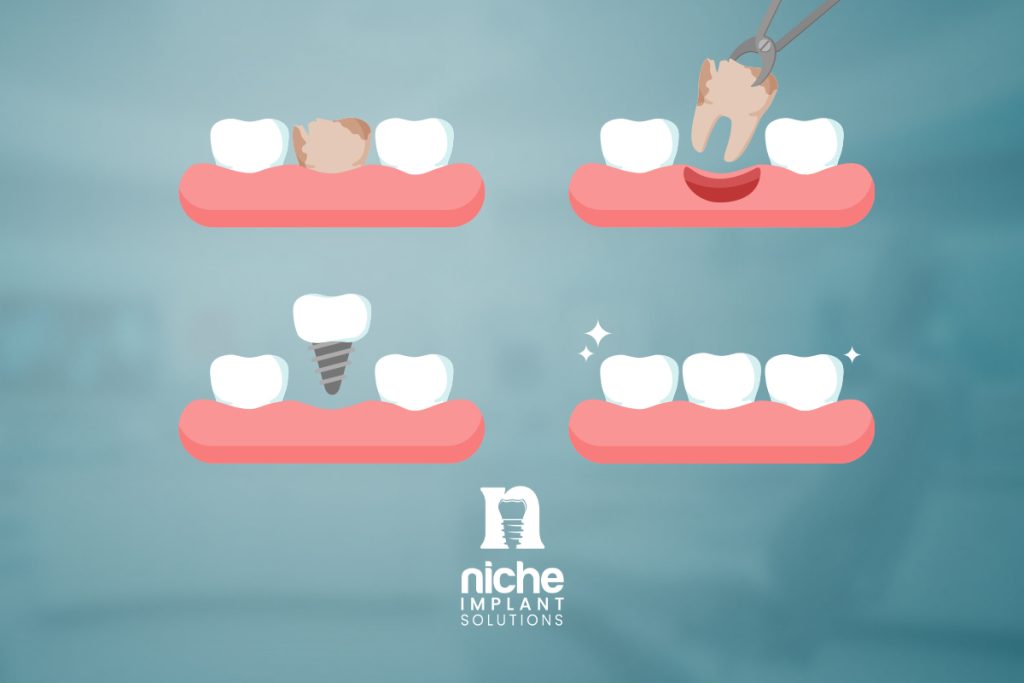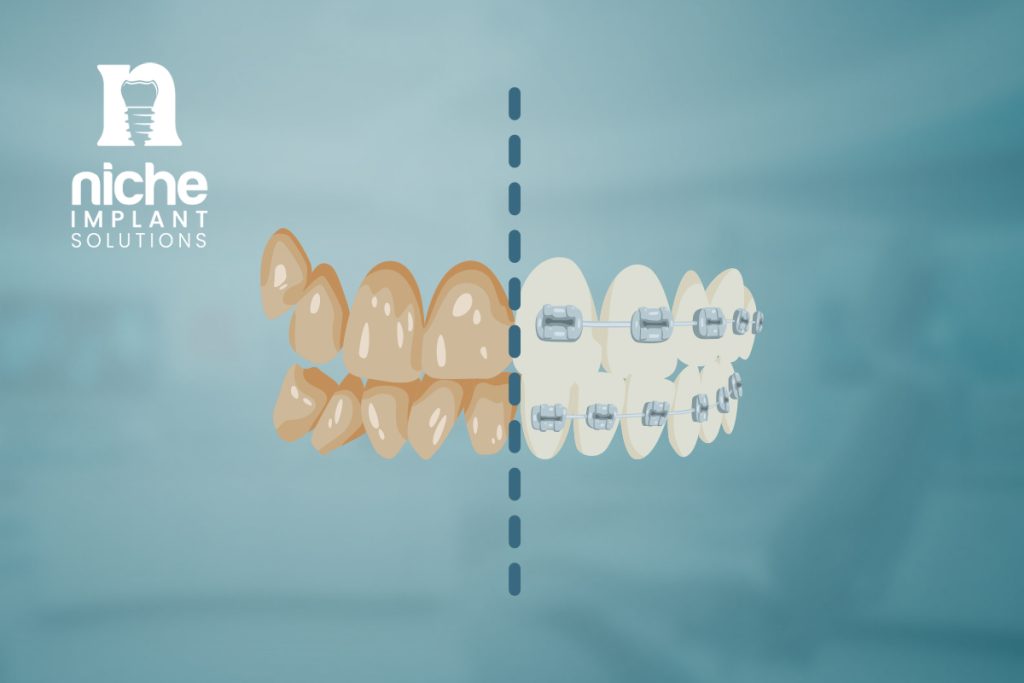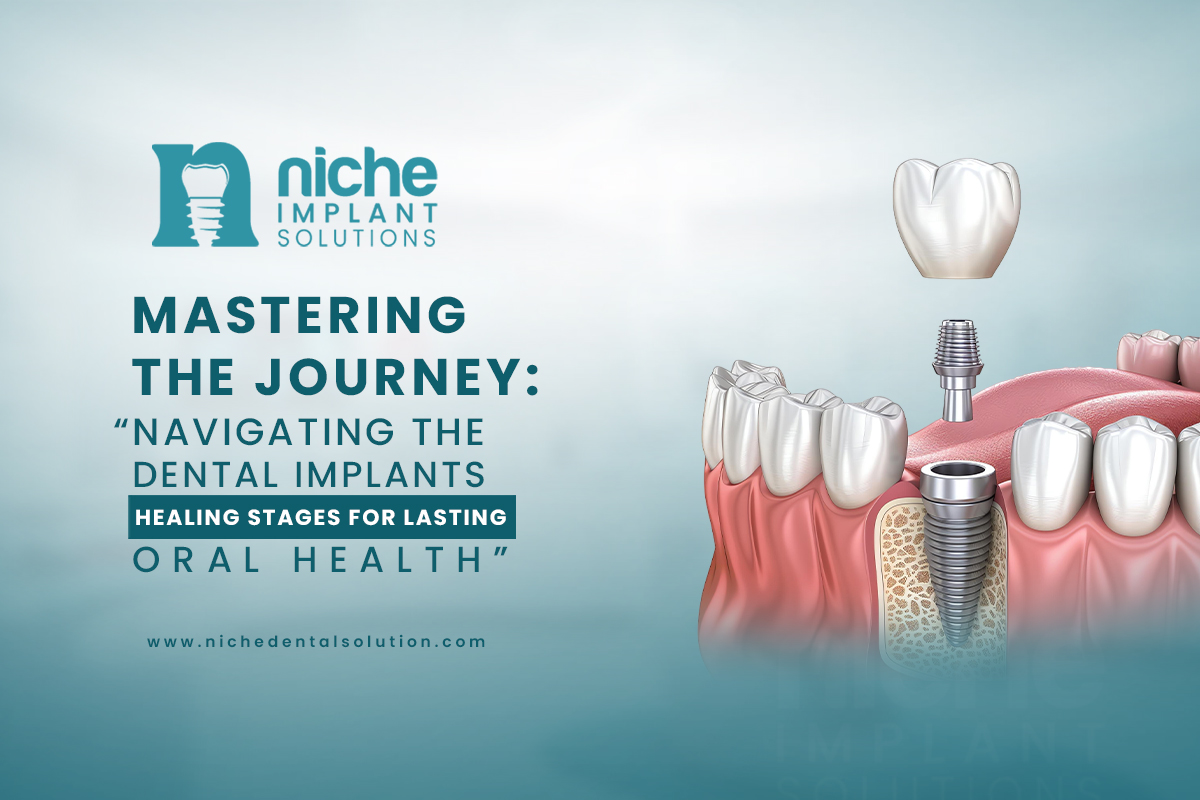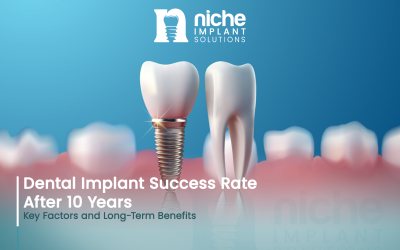In the realm of modern dentistry, dental implants stand as revolutionary solutions for individuals grappling with tooth loss. These sophisticated prosthetic devices not only restore aesthetics but also uphold functionality, allowing individuals to regain confidence in their smiles and enjoy a better quality of life.
However, beyond the gleaming promise of a renewed smile lies a crucial aspect often overlooked, the intricate process of dental implant healing stages .
Understanding the nuances of the dental implant healing stages is paramount for patients embarking on or contemplating dental implant surgery.
Much like any medical procedure, the journey towards a fully integrated and functional dental healing stages involves distinct stages of healing, each playing a pivotal role in the ultimate success of the treatment. By delving into these dental healing stages , patients can equip themselves with knowledge, expectations, and proactive measures necessary to navigate this transformative dental journey with confidence and ease. Join us as we embark on a comprehensive exploration of the dental implant healing stages , uncovering its intricacies and empowering patients to embark on their path to restored oral health and vitality in dental implant healing stages .
Setting the Stage for Success: “Preparing for Dental Implant Healing Stages with Expert Pre-Surgical Preparation”
Before the journey towards dental implant surgery commences, patients undergo a crucial initial consultation process with their dentist or oral surgeon.
This consultation serves as a foundational step, allowing the dental care team to assess the patient’s oral health status, discuss treatment options, and formulate a personalized treatment plan tailored to the individual’s unique needs and circumstances.
During the initial consultation, patients can expect an in-depth discussion with their dental provider regarding their dental and medical history, current oral health concerns, and desired outcomes.
This dialogue not only fosters open communication but also enables the dental team to gain valuable insights into the patient’s overall health and well-being, laying the groundwork for a collaborative and patient-centered approach to treatment.
In addition to comprehensive discussions, the initial consultation often entails a series of pre-surgical evaluations and procedures designed to gather essential diagnostic information and ensure optimal treatment outcomes. Among these may include:
X-rays and Imaging Studies
Utilizing advanced dental imaging techniques such as panoramic X-rays, cone beam computed tomography (CBCT), or intraoral scans, dentists can obtain detailed 3D images of the patient’s oral structures.
These images provide invaluable insights into the quantity and quality of jawbone tissue, the position of adjacent teeth and anatomical structures, and any underlying oral health issues that may impact the success of dental implant surgery.
Comprehensive Oral Examination
A thorough clinical examination of the mouth, teeth, and surrounding tissues allows the dental team to assess the overall oral health status, identify any existing dental issues such as decay or periodontal disease, and evaluate the suitability of the patient for dental implant surgery.
This examination may also involve assessing the patient’s bite, jaw alignment, and occlusal function to ensure proper implant placement and long-term stability.
Bone Grafting or Augmentation (if necessary)
In cases where the jawbone lacks adequate height, width, or density to support dental implants, bone grafting or augmentation procedures may be recommended to enhance the bone volume and create a stable foundation for implant placement.
These procedures involve transplanting bone graft material to the deficient areas of the jawbone, stimulating new bone growth and improving the overall bone quality.
By undergoing these pre-surgical evaluations and procedures, patients can embark on their dental implant journey with confidence, armed with a comprehensive understanding of their oral health status and the necessary steps to achieve successful treatment outcomes.
With a solid foundation in place, patients and dental providers can collaborate effectively towards restoring smiles and transforming lives through the remarkable power of dental implants.
Also read: Revolutionizing Smiles: Full Mouth Dental Implants Transforming Lives Everywhere
“From Planning to Precision: Navigating the Dental Implant Healing Stages with a Surgical Procedure Overview”
dental implant healing stages surgery represents a transformative milestone in restorative dentistry, offering patients a reliable and durable solution for replacing missing teeth and restoring oral function.
This section provides a comprehensive overview of the dental implant surgical procedure, encompassing anesthesia options, surgical techniques, and the crucial components involved in implant placement.
Anesthesia Options
Before delving into the surgical phase, patients undergo anesthesia to ensure comfort and alleviate any potential discomfort during the procedure. Depending on the patient’s preference, medical history, and the complexity of the surgery, various anesthesia options may be considered:
- Local Anesthesia: Administered via injection to numb the treatment area, local anesthesia effectively blocks pain sensations while allowing patients to remain awake and aware throughout the procedure, which is particularly beneficial during the various dental implant stages.
- Intravenous Sedation (IV Sedation): In cases where patients experience dental anxiety or require more profound relaxation, intravenous sedation may be administered by an anesthesiologist. This form of sedation induces a state of deep relaxation, enabling patients to remain conscious yet deeply relaxed during the procedure, which can be especially helpful during the various dental implant stages.
- General Anesthesia: Reserved for complex cases or patients with medical conditions that warrant deeper sedation, general anesthesia renders patients unconscious throughout the duration of the surgery, ensuring complete pain relief and amnesia, which is crucial for managing patient comfort during the various dental implant healing stages.
The choice of anesthesia is determined through thorough discussions between the patient, dentist, and anesthesiologist, prioritizing safety, comfort, and optimal treatment outcomes, especially considering the various dental implant healing stages.

Surgical Techniques
Dental implant surgery encompasses several key steps, each meticulously executed to achieve precise implant placement and ensure long-term success. The surgical process typically unfolds as follows, taking into consideration the various dental implant healing stages.
Incision and Access
- Following anesthesia administration, the oral surgeon or periodontist creates a small incision in the gum tissue to access the underlying jawbone, initiating the first of the various dental implant healing stages.
Drilling and Implant Placement
- Using specialized surgical instruments, the dental provider carefully drills a pilot hole into the jawbone at the predetermined implant site. The dental implant, typically made of biocompatible titanium or titanium alloy, is then securely placed into the prepared osteotomy site, marking a significant milestone in the dental implant healing stages..
Closure
- Once the implant is in position, the gum tissue is sutured closed around the implant, promoting proper healing and integration, which is essential for the success of the dental implant healing stages.
Healing Abutment Placement (optional)
- In some cases, a healing abutment may be attached to the implant at the time of surgery. This component protrudes through the gum tissue, facilitating access for future prosthetic attachment and promoting soft tissue maturation around the implant site.
Role of the Abutment
The abutment serves as a crucial intermediary component bridging the implant fixture and the prosthetic tooth or restoration. Once the implant has integrated with the surrounding jawbone—a process known as osseointegration—the abutment is attached to the implant via a small connector screw, marking a significant milestone in the dental implant healing stages. This component extends beyond the gum line, providing a stable foundation for attaching the final prosthetic restoration, whether it be a single crown, bridge, or implant-supported denture.
By connecting the implant to the prosthetic tooth or restoration, the abutment ensures proper alignment, function, and aesthetics, enabling patients to enjoy seamless integration and optimal oral function following dental implant surgery.
In summary, dental implant surgery represents a meticulously orchestrated procedure designed to restore smiles and enhance oral health.
By understanding the anesthesia options, surgical techniques, and the role of key components such as the abutment, patients can embark on their implant journey with confidence, knowing they are in capable hands and on the path to renewed dental vitality.
“Immediate Recovery Roadmap: Essential Guidance for Dental Implant Healing Stages and Post-Surgical Care”
Following dental implant surgery, patients are provided with comprehensive post-operative care instructions to promote optimal healing and minimize discomfort.
This section outlines the immediate care guidelines typically recommended by dentists or oral surgeons, addresses potential side effects, and underscores the importance of adherence to post-operative instructions for successful recovery.
Immediate Care Instructions
Oral Hygiene
- Patients are advised to maintain good oral hygiene by gently brushing their teeth twice daily with a soft-bristled toothbrush and using an antimicrobial mouthwash as recommended by their dental provider. However, patients should avoid brushing or flossing directly over the surgical site for the first few days to prevent irritation in dental implant healing stages .
Dietary Guidelines
- A soft or liquid diet is often recommended immediately following surgery to avoid placing undue stress on the surgical site. Patients should opt for cool, soft foods and beverages and avoid hot, spicy, or crunchy foods that may irritate the gums or dislodge the surgical wound.
Medication Management
- Patients are prescribed pain medications and antibiotics to manage discomfort and prevent infection. It is crucial to follow the prescribed dosage and frequency as directed by the dental provider. Over-the-counter pain relievers such as ibuprofen may also be recommended to alleviate mild discomfort and reduce swelling.
Rest and Recovery
- Adequate rest and relaxation are essential for promoting healing and minimizing post-operative complications. Patients are advised to avoid strenuous physical activities, heavy lifting, and vigorous exercise for the first few days following surgery to prevent excessive bleeding or trauma to the surgical site in dental implant healing stages .
Potential Side Effects and Management in dental implant healing stages !
Despite meticulous surgical technique and adherence to post-operative care guidelines, patients may experience some common side effects following dental implant surgery, including:
Swelling
- Swelling around the surgical site is a normal response to surgery and typically peaks within the first 48 hours before gradually subsiding. To reduce swelling, patients can apply ice packs to the affected area for 20 minutes on and 20 minutes off during the first 24 to 48 hours post-surgery.
Bruising
- Bruising may occur as a result of minor bleeding beneath the skin’s surface during surgery. While bruising is typically mild and resolves on its own within a few days, patients can apply warm compresses to the affected area to promote circulation and hasten resolution.
Discomfort
- Some degree of discomfort or soreness is to be expected following dental implant surgery. Patients can alleviate pain by taking prescribed pain medications as directed, avoiding hot or spicy foods that may irritate the surgical site, and maintaining proper oral hygiene practices.
Importance of Post-Operative Instructions
Adherence to post-operative instructions is paramount for ensuring optimal healing and successful outcomes following dental implant surgery.

By following the prescribed care regimen, patients can minimize the risk of complications such as infection, implant failure, or delayed healing, and expedite their return to normal oral function.
Patients should attend all scheduled follow-up appointments with their dental provider to monitor healing progress, address any concerns or complications promptly, and adjust the treatment plan as needed.
In summary, immediate post-surgical care plays a pivotal role in promoting successful healing and minimizing discomfort following dental implant surgery.
By following the prescribed care instructions, managing potential side effects effectively, and prioritizing rest and recovery, patients can embark on their implant journey with confidence, knowing they are taking proactive steps towards a healthier, more radiant smile.
The Niche Company Dental Solutions: “Enhancing Dental Implant Healing Stages with Specialized Care and Expertise”
In the landscape of modern dentistry, the Niche Company Dental Solutions emerges as a beacon of excellence, dedicated to enhancing the dental implant healing stages with specialized care and expertise.
Through a commitment to specialization, precision planning, expert surgical techniques, comprehensive post-surgical care, and personalized support, the Niche Company sets a new standard in dental implantology.
At the heart of their approach lies a dedication to innovation and patient-centered care, ensuring that every individual receives the attention, support, and resources needed to navigate the implant journey with confidence and ease.
From the initial consultation to the final restoration phase and beyond, patients can trust in the expertise of the Niche Company Dental Solutions to deliver exceptional outcomes and lasting oral health benefits.
As the demand for dental implants continues to rise, the role of specialized dental solutions like the Niche Company becomes increasingly vital.
By partnering with a trusted provider that prioritizes specialization, innovation, and personalized care, patients can embark on their journey towards restored smiles and enhanced oral health with peace of mind, knowing they’re in capable hands every step of the way.
By partnering with Niche Dental, you gain access to the best possible tools, exceptional service, and a company committed to the continuous advancement of dentistry in Egypt, all while supporting a company dedicated to social responsibility.
Contact Niche Dental Now : Experience the Difference
Call us on +201011687002
Location
Cairo٫Zahraa Elmaady٫ Carrefour St٫ 10058





0 Comments